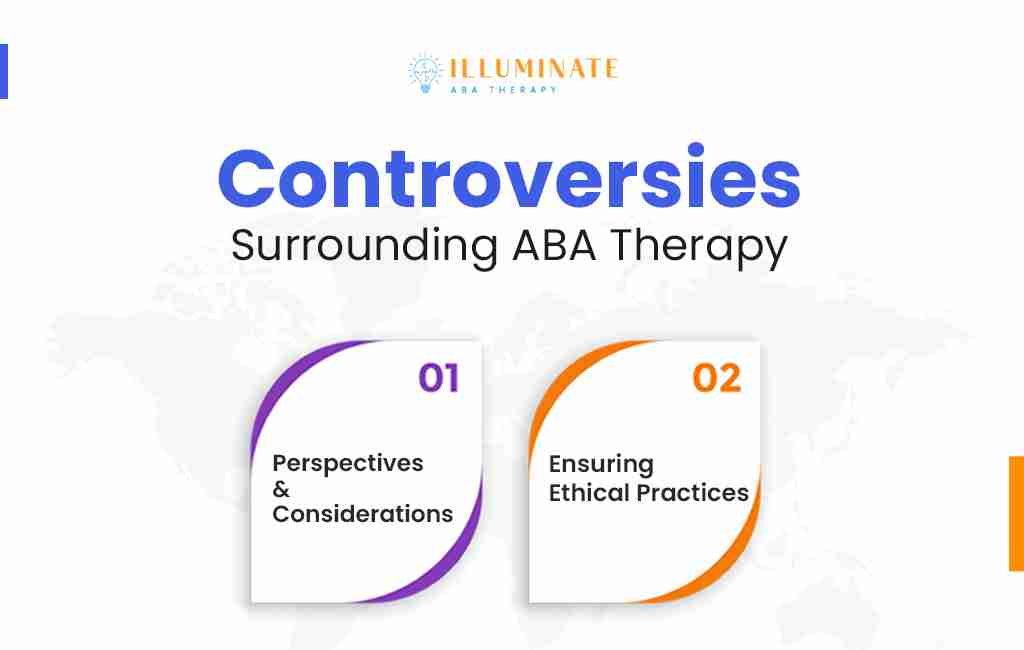Navigating Progress: A Glimpse into ABA Therapy Testimonials in Colorado
ABA TherapyJuly 17, 2025

Understanding ABA Therapy
Alright, let's chat about ABA therapy. It's got some serious history and muscle when it comes to autism treatment. Want to know why it's such a big deal in helping kids on the autism spectrum? Stick with me here.
History and Purpose
Since the groovy 1960s, Applied Behavior Analysis (you can call it ABA for short) has been around, helping kids with autism find their groove, too. According to Autism Speaks, this method mixes learning science with practical tactics to help improve important daily behaviors. Think of it as a toolkit for tackling those pesky communication issues, social hiccups, and those repetitive quirks that can come with autism.
Benefits of ABA Therapy
Ever heard of boot camp for behavior? ABA therapy can be kind of like that—super structured and often intense, chalking up 25 to 40 hours a week over a few years. As Autism Speaks tells us, it's been known to turbo-boost things like brain power, language skills, and the everyday stuff we all need like a bit of friendliness and get-through-the-day tactics.
Bigwigs like the US Surgeon General and the American Psychological Association totally back ABA as a solid choice for autism treatment. With stacks of studies giving it a thumbs up, ABA therapy proves to be a game-changer—helping individuals on the autism spectrum hit those super important developmental goals and live their best lives.
So, when you know where ABA therapy came from and why it does what it does, the folks in Colorado (and everywhere else) can choose autism therapies with a clear mind and proper insight. ABA therapy doesn't just promise positive change—it delivers.
ABA Therapy Programs in Colorado
Colorado families on the hunt for autism therapy have two solid places to check out: Trumpet Behavioral Health in Highlands Ranch and BlueSprig Autism Center in Westchase. These centers are known for making a difference with their ABA therapy programs for kids with Autism Spectrum Disorder (ASD).
Trumpet Behavioral Health - Highlands Ranch
Over at Trumpet Behavioral Health in Highlands Ranch, Colorado, they roll out the red carpet for Applied Behavior Analysis (ABA) therapy tailored to each child's needs. Their expert team, which includes board-certified behavior analysts (BCBAs), hooks kids up with personalized programs that suit their skills, requirements, and family life, echoing advice from Autism Speaks.
The typical plan at Trumpet involves a weekly commitment of 25 to 40 hours, spanning 1 to 3 years. The aim? To amp up language skills, daily routines, and social skills through proven ABA strategies. Their ultimate goal is to boost communication, foster independence, and develop crucial life skills for children with ASD. Families looking for some heartfelt, top-notch support might find Trumpet Behavioral Health a suitable fit for their kiddos.
BlueSprig Autism Center - Westchase
Meanwhile, BlueSprig Autism Center in Westchase, Colorado, gets a big thumbs up from families for their warmth and professionalism. Parents have left glowing reviews, sharing how the team helped tackle challenging behaviors, creating positive ripples in their children's lives.
BlueSprig sticks to what works, using the ABA principles to design custom interventions for kids with ASD. Their programs are all about boosting communication skills, encouraging self-reliance, and helping kids mix and mingle socially.
Both Trumpet Behavioral Health and BlueSprig Autism Center stand out in Colorado with their ABA therapy programs. They're all about helping kids with ASD grow and thrive. Families can tap into these centers for programs that address the individual needs of their children, ensuring they receive the support they deserve.
Parental Involvement in ABA Therapy
When checking out ABA therapy programs in Colorado, the role parents play isn't just a nice-to-have, it's the secret sauce that makes everything tick. Rolling up your sleeves and diving in is a game-changer for the therapy's success. Getting why your part matters and jumping in as a support system are really what makes a difference for your kid in ABA therapy.
Importance of Engagement
Being involved isn't just about showing up—it's about making things happen. As parents, there's a golden ticket waiting for you: the chance to be right there in the sessions, seeing how your child's gears are turning and helping give them a push forward. When you participate, you pick up the how-tos and tricks of the trade, getting you and your kid in sync and ready to nail those milestones long after the pros have left the room.
Think of ABA therapy like a team sport with you as an MVP alongside the pros. Staying in the loop means you can keep those good habits rolling. A little consistency at home—a few pep talks here, a structured routine there—helps solidify all those new skills your kid's mastering.
Support and Participation
In this therapy journey, parents aren't just cheerleaders on the sidelines; they're part of the squad. Your active involvement could give your child the winning edge. When those new behaviors pop up outside the therapy rooms, it’s crucial to encourage and reinforce them in everyday life.
Emotional support, regular high-fives, and sticking with the plan are key players in your involvement with ABA therapy. Team up with the therapy folks—talk it out, understand the ins and outs of your kid's needs, and see where they're making strides or needing a little more help. This tag-team effort turns into a strong, personalized action plan aimed straight at your child’s goals.
So, getting stuck into ABA therapy not only boosts the impact of the sessions but also tightens the bond with your child. Being proactive in their therapy adventure lays down the groundwork for a happier, more successful journey for both you and your child.
Controversies Surrounding ABA Therapy

When you dig into ABA therapy, you've gotta face some nasty debates about this treatment. Yeah, there are different views and lots of chatter around how it's done right and staying ethical.
Perspectives and Considerations
People have mixed feelings in the autism community about how good and fitting ABA therapy really is. Sure, ABA therapy can help kids learn important stuff like taking care of themselves and chatting with others. But, some folks aren't too happy about how these sessions run. Some critics feel the methods might seem a tad pushy or even mean, so it's super important to keep everything friendly and centered on the person getting the help (The Autism Cafe).
If you're a parent thinking about ABA for your kid, do your homework. Make sure you pick someone who knows what they're doing and have lots of chats with the people running the show. Knowing the good, the bad, and what your kid actually needs helps you decide if this is the right fit.
Ensuring Ethical Practices
At the heart of the ABA talk is making sure everything's done right. When ABA therapy's done by the book, it can be a win for folks with autism. But the magic really happens when you've got top-notch experts driving the process.
A good Board Certified Behavior Analyst (BCBA) will craft plans that fit each kid's needs and goals. The therapy should be about teaching cool new skills, using thumbs-up methods like positive vibes and ditching the negative stuff (The Autism Cafe).
To keep things ethical in ABA, therapy folks need to put the child's well-being front and center. That means creating a cozy and supportive setting, letting clients make choices, and using methods that are backed by science and respect different cultures. Everyone working together—parents, therapists, and the kiddos—is key to sticking to ethical norms and squeezing the most benefits out of ABA while watching out for any trouble.
By having real conversations, pushing for good habits, and being open and accountable, we can tackle the beef around ABA therapy. This can lead to better care and happier stories for folks with autism in Colorado.
